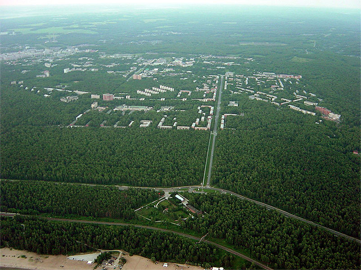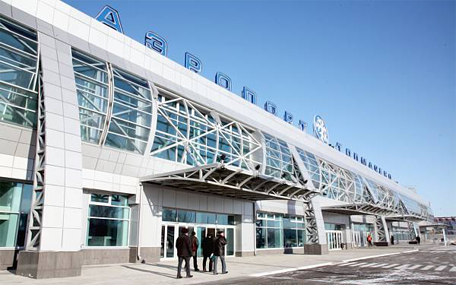The Ershov Informatics Conference (the PSI Conference Series, 12th edition) is the premier international forum in Russia for research and applications in computer, software and information sciences. The conference brings together academic and industrial researchers, developers and users to discuss the most recent topics in the field. PSI provides an ideal venue for setting up research collaborations between the Russian informatics community and its international counterparts, as well as between established scientists and younger researchers.
Conference Chair
Alexander Marchuk, A.P. Ershov Institute of Informatics Systems & Novosibirsk State University, Novosibirsk, Russia
Keynote Speakers
- Moshe Vardi, Rice University, USA
- Andrew Yao, Tsinghua University, Beijing, China
- Sören Auer, Leibniz Information Centre for Science and Technology and University Library, Germany
- Joost-Pieter Katoen, Aachen University, Germany
- Marta Kwiatkowska, Oxford University, UK
- Margus Veanes, Microsoft Research, Redmond, USA
Steering Committee
- Kim Guldstrand Larsen, Aalborg University, Denmark
- Bertrand Meyer, ETH, Zurich, Switzerland & Innopolis University, Kazan, Russia
- Vladimiro Sassone, University of Southampton, UK
- Michael Gerard Hinchey, Limerick, Ireland
- Sriram Rajamani, Microsoft Research India
- Igor Agamirzian, Higher School of Economics, Russia.
Program Committee Chairs
- Nikolaj Bjørner, Microsoft Research, Redmond, USA
- Irina Virbitskaite, A.P. Ershov Institute of Informatics Systems & Novosibirsk State University, Novosibirsk, Russia
- Andrei Voronkov, University of Manchester, UK
Publicity Chairs
- Natalia Garanina, A.P. Ershov Institute of Informatics Systems, Novosibirsk, Russia
- Denis Ponomaryov, A.P. Ershov Institute of Informatics Systems, Novosibirsk, Russia
Conference Topics
1. Foundations of Program and System Development and Analysis
- Specification, validation, and verification techniques
- Program analysis, transformation and synthesis
- Semantics, logic and formal models of programs
- Partial evaluation, mixed computation, abstract interpretation, compiler construction
- Theorem proving and model checking
- Concurrency theory
- Static program analysis
- Modeling and analysis of real-time and hybrid systems
2. Programming Methodology and Software Engineering
- Object-oriented, aspect-oriented, component-based and generic programming
- Programming by contract
- Program and system construction for parallel and distributed computing
- Constraint programming
- Multi-agent technology
- System re-engineering and reuse
- Integrated programming environments
- Software architecture
- Software development and testing
- Agile software development
- Software engineering methods and tools
- Service engineering, service-oriented architecture
- Reverse engineering
- Reflection techniques
- Software bugs, aging and reliability models and countermeasures
- Program understanding and visualization
3. Information Technologies
- Database and information systems
- Data models
- Distributed data storage and processing
- Data science and data analytics: machine learning, data mining, knowledge discovery
- Knowledge-based systems and knowledge engineering
- Integration of data and knowledge
- Computer models and algorithms for bioinformatics
- Digital libraries, collections and archives, Web publishing
More generally, the conference welcomes novel contributions in the areas of computer, software and information sciences, and application papers showing practical use of research results.
Program Committee Members
- Marcello M. Bersani, Politecnico di Milano, Italy
- Leopoldo Bertossi, Carleton University, Canada
- Andrea Calì, London University, UK
- Marsha Chechik, Toronto University, Canada
- Volker Diekert, Stuttgart University, Germany
- Salvatore Distefano, Messina University, Italy
- Hans van Ditmarsch, LORIA, France
- Nicola Dragoni, Technical University of Denmark, Denmark
- Schahram Dustdar, TU Wien, Austria
- Dieter Fensel, STI Innsbruck, Austria
- Carlo A. Furia, Università della Svizzera Italiana, Italy
- Valentin Goranko, Stockholm University, Sweden
- Sergei Gorlatch, Muenster University, Germany
- Damas Gruska, Comenius University, Slovakia
- Arie Gurfinkel, Carnegie Mellon University, USA
- Konstantin Korovin, Manchester University, UK
- Maciej Koutny, Newcastle University, UK
- Laura Kovács, Vienna University of Technology, Austria
- Manuel Mazzara, Innopolis University, Russia
- Klaus Meer, Brandenburg University of Technology Cottbus-Senftenberg, Germany
- Torben Ægidius Mogensen, DIKU, Denmark
- Peter D. Mosses, Swansea University, UK
- José Ramón Paramá Gabía, University of A Coruña, Spain
- Wojciech Penczek, Institute of Computer Science PAS, Poland
- Alexander Petrenko National Research University Higher School of Economics, Russia
- Alberto Pettorossi, University of Rome Tor Vergata, Italy
- Qiang Qu, SIAT, China
- Wolfgang Reisig, Humboldt-University of Berlin, Germany
- Andrei Sabelfeld, Chalmers University of Technology, Sweden
- Davide Sangiorgi, Bologna University, Italy
- Cristina Seceleanu, Mälardalen University, Sweden
- Natalia Sidorova, Technical University Eindhoven, Netherlands
- Giancarlo Succi, Innopolis University, Russia
- Mark Trakhtenbrot, Holon Institute of Technology, Israel
- Enrique Herrera Viedma, University of Granada, Spain
- Matthias Weidlich, Humboldt-Universitat zu Berlin, Germany
Important Dates
- February 3, 2019: abstract submission
- February 10, 2019: submission deadline
- April 1, 2019: notification of acceptance
- April 27, 2019: camera ready papers for pre-proceedings
- July 2–5, 2019: the conference dates
- September 1, 2019: camera ready papers due
Submissions
There are four categories of submissions:
- Regular papers describing fully developed work and complete results (15 pages excluding references / 30 minute talks).
- Short papers reporting on interesting work in progress and/or preliminary results (9 pages excluding references / 20 minute talks).
- System and experimental papers describing implementation or evaluation of experimental systems and containing a link to a working system (7 pages excluding references / 15 minute presentations).
- Poster papers reporting on interesting work under development (included only in the preliminary proceedings / poster presentations).
Submissions should
- Present original contributions that have not been previously published and are not being submitted to another publication.
- Clearly state the problem being addressed, the goal of the work, the results achieved, and the relation to other work.
- Be in good-quality English, in a form that can be immediately published without revision.
- Be sent electronically, as a PDF file formatted according to Springer LNCS Instructions for Authors through submission site not later than February 17, 2019.
It is permissible to include a link to an appendix listing detailed results, proofs, or supporting data that do not fit within the page limits, as long as the paper can be evaluated without reading this appendix.
At least one author of each accepted paper has to register and attend the conference to present the paper.
Conference Proceedings
Preliminary proceedings will be available at the conference. Final versions of invited and accepted papers will be published by Springer after the conference in the Lecture Notes in Computer Science series. Proceedings of previous PSIs are volumes 1181, 1755, 2244, 2890, 4378, 5947, 7162, 8974, 9609 and 10742 of LNCS.
Workshops
Location
The conference will be held in Akademgorodok, a picturesque town near Ob’ Lake, 30 km south from Novosibirsk, the largest city of Siberia. This quiet place with its beautiful nature and pure air is sure to foster scientific activity and creativity of the conference participants.
Call for Papers for Download
Travelling
You can fly to Novosibirsk via Moscow by Aerofiot, S7, UTair or Ural Airlines. There are direct flights to Novosibirsk airport Tolmachevo from Frankfurt, Düsseldorf, Prague, Thessaloniki, Tbilisi, Yerevan, Tokyo, Seoul, Hongkong, Shanghai, Beijing or Bangkok. The Conference Organizing Committee provides a free transfer between the Novosibirsk airport Tolmachevo and Akademgorodok.
Weather
The weather in Novosibirsk at the beginning of July is normally quite warm and sunny with the temperatures in the range of 25–30°C.
Conference Secretaries
- Irina Adrianova, A.P. Ershov Institute of Informatics Systems
- Natalia Cheremnykh, A.P. Ershov Institute of Informatics Systems
A.P. Ershov Institute of Informatics Systems,
Russian Academy of Sciences, Siberian Branch
6, Acad. Lavrentjev pr., Novosibirsk 630090, Russia
tel: +7 383 330 73 52,
fax: +7 383 332 34 94,
e-mail: psiconf2019@gmail.com


